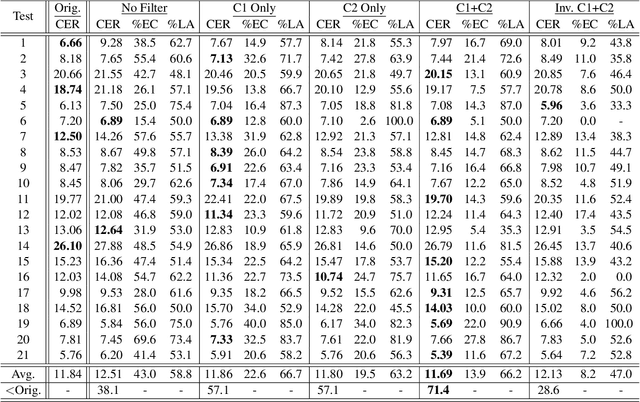Robust ASR Error Correction with Conservative Data Filtering
Paper and Code
Jul 18, 2024



Error correction (EC) based on large language models is an emerging technology to enhance the performance of automatic speech recognition (ASR) systems. Generally, training data for EC are collected by automatically pairing a large set of ASR hypotheses (as sources) and their gold references (as targets). However, the quality of such pairs is not guaranteed, and we observed various types of noise which can make the EC models brittle, e.g. inducing overcorrection in out-of-domain (OOD) settings. In this work, we propose two fundamental criteria that EC training data should satisfy: namely, EC targets should (1) improve linguistic acceptability over sources and (2) be inferable from the available context (e.g. source phonemes). Through these criteria, we identify low-quality EC pairs and train the models not to make any correction in such cases, the process we refer to as conservative data filtering. In our experiments, we focus on Japanese ASR using a strong Conformer-CTC as the baseline and finetune Japanese LLMs for EC. Through our evaluation on a suite of 21 internal benchmarks, we demonstrate that our approach can significantly reduce overcorrection and improve both the accuracy and quality of ASR results in the challenging OOD settings.
 Add to Chrome
Add to Chrome Add to Firefox
Add to Firefox Add to Edge
Add to Edge